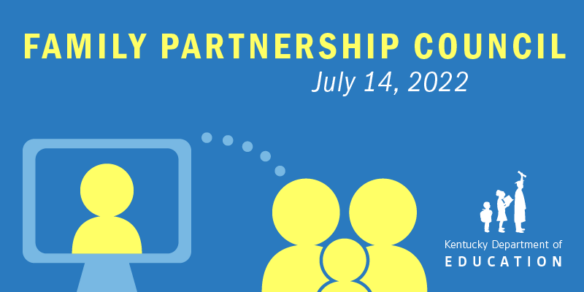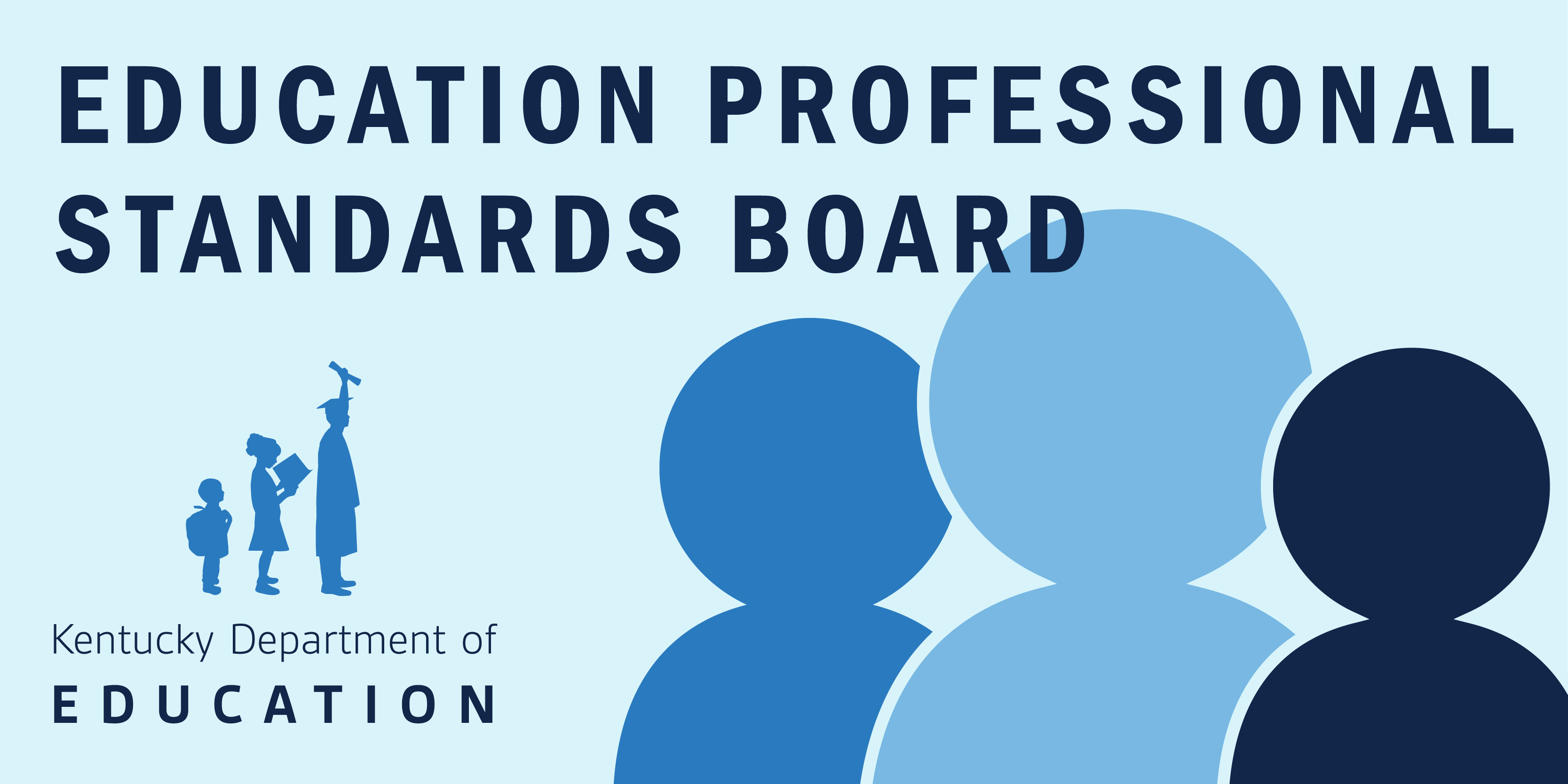
Kentucky Commissioner of Education Jason E Glass told the Kentucky Department of Education’s (KDE’s) Family Partnership Council at its July 14 meeting that the 2022-2023 school year is the first time in three years that schools can anticipate a year without major disruptions.
“We should be realistic about how long it is going to take for our students and our communities to really recover from the disruption to learning that took place,” said Glass.
Glass anticipates that when Kentucky Summative Assessment results come out in the fall, there will be “dramatic improvements and gains … but that we will also see that there is a long way to go.”
The Family Partnership Council serves in an advisory role to KDE and provides input regarding topics of interest to families, such as ways that families and communities can assist schools in ensuring that the achievement level of all students is increased.
“This year’s Family Partnership Council is prioritizing how families can be seen and equipped as a resource to schools and the community,” said Brooke Gill, the senior director of Family Engagement Policy and Practice for the Prichard Committee and council chair. Glass said the council must honor that parents are demanding access, transparency and a say in their students’ education.
During the meeting, many members also noted the importance of minority parent representation on school councils. Glass said challenges faced by minority and low-income families create boundaries for individuals interested in enacting change in their schools. He suggested that additional childcare and food services may create more freedom for parents looking to join their school board.
Rhonda Logsdon, executive director of the Kentucky Special Parent Involvement Network, shared the importance of celebrating all types of high school graduates, no matter the type of diploma they earned. She wants to make sure that schools use a positive approach to express policies and the method they take to award different types of diplomas.
Elizabeth Bruce of the West Kentucky Educational Cooperative asked Glass how to best address the teacher shortage. He responded that there is an outsized reliance on emergency certification. Since the 2015-2016 school year, Kentucky has been experiencing an increase in the number of emergency certifications issued.
“Teaching is a profession and a calling that requires specialized training and an ongoing commitment to keeping up with new ideas and changes,” said Glass.
He said he hopes that legislators will help raise salaries for teachers and encourage the best and brightest to enter the profession. He also encouraged people to run for their local school board.
Encouraging Family Engagement Among Educators
Lauren Mitchell of the Kentucky Association of School Councils suggested that schools partner with universities to ensure that new teachers learn more about the benefits of family engagement and how best to do it. Glass recommended that the council partner with universities to make this happen.
Gill shared with the council how Family Friendly certified schools are promoting family engagement.
KDE is partnering with the Prichard Committee for Academic Excellence, through its Kentucky Collaborative for Families and Schools, to encourage intentional family engagement through the Family Friendly certification. Kentucky is one of 12 states to receive the Statewide Family Engagement Center grant from the U.S. Department of Education to provide comprehensive support for systemic and effective family engagement policies.
Many schools involved in the certification process have said that making communication more accessible, comfortable and personal allowed for more effective family engagement. These certified schools also suggested that:
- It’s about being intentional in the small things more than huge program overhauls.
- Getting to know families is helping staff break down preconceived notions about how much families care.
- Many families found Zoom and phone calls more convenient and less intimidating than in-person.
Gill then presented current family engagement challenges and discussed possible solutions and next steps. Challenges identified in the meeting included a need for teachers to have more “planning and professional development time to learn best practices and create classroom strategies that fit their unique personality and strengths.”
The council called for more work on streamlining family engagement in Title 1, Comprehensive School Improvement Plan, Family Friendly Certificates, L3s and individual School Report Card metrics.
Gill provided the council’s next steps, which includes:
- Completing 50 Family Friendly certificates by Nov. 1.
- Encouraging administrators to designate calendar time for educators to study and practice individual and classroom family partnership strategies.
- Getting to know families first, partnership comes second.
- Creating more to streamline family engagement through school and district initiatives, reporting, etc.



Leave A Comment